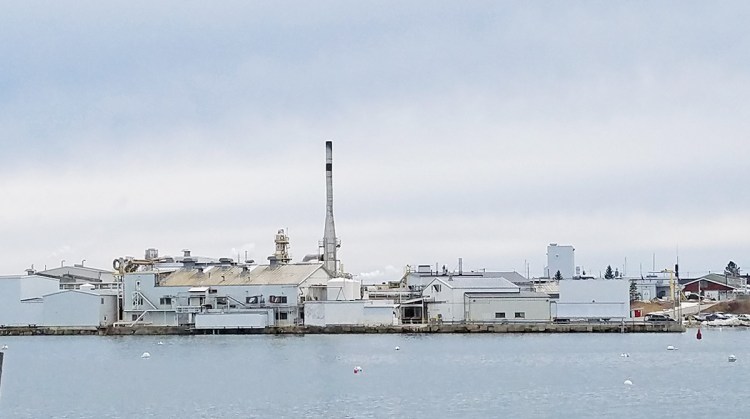ROCKLAND — Chemical giant DuPont plans to acquire an FMC Corp. division that includes the carrageenan manufacturing plant in Rockland.
DuPont – a Wilmington, Delaware-based company – and FMC announced the proposed deal on Friday. It is expected to close in the final quarter of this year.
Philadelphia-based FMC has owned the plant since 1977.
“DuPont will acquire FMC Health and Nutrition, which includes the Rockland, Maine, site. During this sign-to-close period, it is ‘business as usual’ for FMC and we will continue to work with and within our communities as we do today,” said Dwayne Roark, director of corporate communications for FMC, when asked what impact the sale would have on the Rockland facility.
“We do not have any specifics about the future of our sites at this time, but as a longstanding institution in this community, we recognize the importance of the partnerships we’ve developed and the impact we’ve made in the neighborhoods where we operate,” he added. “We will share updates as we learn more about our transition with DuPont following the close of this agreement.”
As of last year, the FMC plant in Rockland employed 107 people. The company is one of the largest employers in Knox County and is the largest property taxpayer in Rockland, with a valuation on its land, buildings and equipment of $20.9 million. The carrageenan manufacturer paid about $454,000 in property taxes to the city during the past year.
Carrageenan is a common food additive extracted from seaweed and used as a thickening agent and stabilizer in such items as whipped cream, yogurt, ice cream, toothpaste and gelatin products.
FMC’s Health and Nutrition business generated more than $700 million in revenues during 2016, according to a news release from DuPont.
DuPont had total revenues last year of $24.5 billion.
DuPont said the FMC division is highly complementary to DuPont’s existing nutrition and health business and provides an opportunity for “growth synergies.”
The transaction with FMC is subject to the closing of the merger of DuPont and Dow Chemical, in addition to other customary closing conditions, including regulatory approvals, according to DuPont.
The deal is being driven by the necessity of DuPont to sell part of its crop protection unit to FMC in order for DuPont to win European Union approval for its merger with Dow Chemical.
Rockland has been the home of the seaweed-processing plant since Algin Corp. opened it in December 1936.
According to FMC’s website, Victor LeGloahec began his enterprise on Crockett’s Point, where the Rockland and Lime Co. had processed and stored lime. Algin Corp. used the brown seaweed known as kelp to make alginate, which was used as a food additive.
Send questions/comments to the editors.


